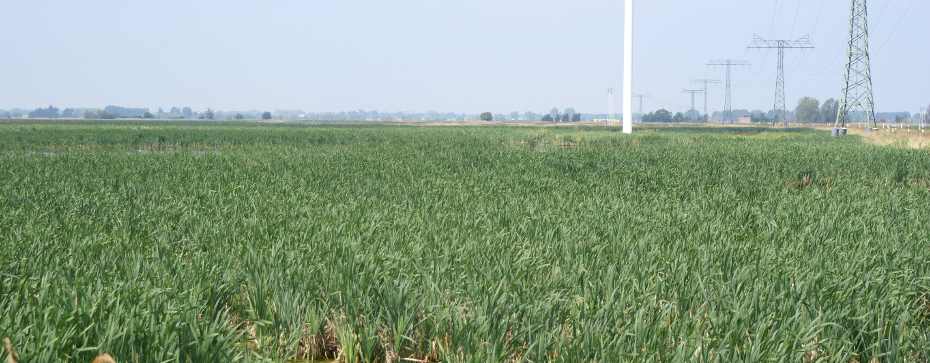Background and Objectives
Under Germany’s Climate Action Plan 2050, the land use, land-use change and forestry sector (LULUCF) is to be maintained as a net carbon sink until 2030 and subsequently expanded into a more effective sink by 2050. This means that in the longer term, the sector should absorb more CO2 than it emits. Because, according to official forecasts, this target will not be achieved in the coming years, more ambitious measures are needed in Germany to reduce existing greenhouse gas emissions and secure sink capacity in the LULUCF sector. LULUCF could be maintained as a net carbon sink through large-scale rewetting of peatlands. In addition, agriculture or forestry on rewetted peatland soils, so-called paludiculture, could make an additional contribution towards climate change mitigation, as carbon is stored in the crops that are grown on the land. Paludiculture biomass can also substitute other fossil raw materials. Against this backdrop and on behalf of the Federal Environment Agency (UBA), the Institute of Sustainable Development of Landscapes of the Earth (DUENE) is conducting a research project to identify incentives to promote paludiculture in implementing Germany’s 2030 and 2050 climate goals. The project’s aim is to develop incentive systems for the rewetting of peatlands and to promote the establishment of paludiculture in Germany.
Implementation
The project consists of four progressive work packages. In the first work package, the project team assesses the potential contribution of paludiculture towards achieving climate goals and identifies existing barriers that hinder rewetting and paludiculture introduction. Then, in the second work package, the team looks at measures that can be used to overcome those barriers in order to achieve the climate goals via peatland protection and paludiculture and assesses how those measures can be supported through the use of financial incentives. In the third work package, the contribution made by the current funding of peatland use by the EU, the German federal government and the German Länder (states) in achieving climate policy goals is subsequently explored. This is followed by criteria-based selection of three target-oriented funding instruments for rewetting and conversion to paludiculture. Building on this, in the fourth work package the team develops application-oriented recommendations for action for the design and combined use of market-based incentives in implementing paludiculture and achieving effective reduction of greenhouse gas emissions from Germany’s peatlands.
Outcomes and Outlook
The three financing instruments were selected in conjunction with the UBA and the project-accompanying working group at a virtual working meeting held in November 2020. The following instruments were selected for use in further work to be conducted as part of the fourth work package: Climate change bonuses, promotion of investment and innovation, and proposals for instruments to shape the second pillar of EU Common Agricultural Policy. The final project results and the recommendations for action will be discussed and further developed at a workshop with experts in summer 2021, and then compiled and published in a project report.

